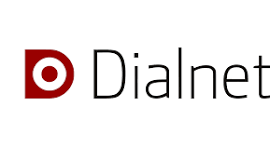Some Thoughts on Organizational Knowledge from the perspective of knowledge management
Keywords:
Organizational Knowledge, Dimensions of Knowledge, Knowledge TechnologyAbstract
Today organizations are active in increasingly more global and dynamic generated, thus more competitive. A clear example of competitive firms are technology-based, since the speed of change that occurs in this industry requires the development of innovations constantly to respond to changing market conditions. In this situation, organizations are rethinking what they find more strategic, knowledge being a key element in sustaining competitive advantage. In this article we reflect on organizational knowledge from knowledge management as a driver of innovation performance, which involve the development and use of knowledge assets both internally and externally.
References
Alavi, M. y Leidner, D. (2001). “Knowledge Management and Knowledge Management Systems: Conceptual Foundations and Research Issues”, en: MIS Quarterly, Vol. 25, No. 1, pp. 107-136.
Belly, P (2004). El Shock del Management: La Revolución del Conocimiento. México: Mc Graw-Hill.
Brooking, A. (1997). El capital intelectual: el principal activo de las empresas del tercer milenio. Madrid: Editorial Paidos.
Bukowitz, W. y Williams, R. (1999). The Knowledge Management Fieldbook. London: Pearson Education Limited.
Davenport, T. y Prusak, L. (1998). Working Knowledge: How organizations manage what they know. Boston: Harvard Business Scholl Press.
Drucker, P. (1968). Management Challenges for the 21st Century. Canada: Harper Collins.
Edvinsson L. y Malone, M. (1999). El Capital Intelectual. Barcelona: Ediciones Gestión 2000, S.A.
Garvin, D. (1993). Harvard Business Review on Knowledge. USA: Management, HB Press.
Hessen, Johannes (2001). Teoría del Conocimiento. Séptima reimpresión.
Bogota: Panamericana Editorial Ltda.
Martín, P. (1999). Relatoría de la Mesa Redonda sobre Gestión del Conocimiento, en: Feria Internacional de las Tecnologías de Información. Profes Inform; 8(3):44.
Ministerio de Educación, Ciencia y Tecnología de Argentina (2007). http://www.me.gov.ar/curriform/mastecno.html
McGrath, J.E. y Argote, L. (2002). Grup proceses in organizational contexts. Blackwell handbook of social psyhology. Oxford, UK: Blackwell.
Nonaka, I. (1991). The knowledge-creating company. Harward Business Review, 69. pp. 96-104.
Nonaka, I. y Takeuchi, H. (1995). La organización creadora de conocimiento. New York: Oxford University Press.
(1999). La organización creadora de conocimiento. Cómo las compañías japonesas crean la dinámica de la innovación. México: Oxford University Press.
O’Dell, C. y Jackson, G. (1998). If only we knew what we know: The Transfer of Internal Knowledge and Best Practice. New York: Free Press.
Polyani, M. (1966). The Tacit Dimension. New York: Doubleday.
Rodríguez, J. (1999). Relatoría de la Mesa Redonda sobre Gestión del Conocimiento, en: Feria Internacional de las Tecnologías de Información. Profes Inform;8(3):1.
Seaton, C. y Bresó, S. (2001). El desarrollo de un sistema de gestión del conocimiento para los institutos tecnológicos, en: Espacios. Vol. 22 (3).
Senge, P. (1994). La quinta disciplina. Currency.
Sveiby, K. (1997). The New Organizational Wealth: Managing and Measuring Knowledge-Based Assets. Berrett-Koehler Publisher lnc.
Teece, D.J. (2000). Strategies for managing knowledge assets: The role of firm structure and industrial context. Long Range Planning. 33. pp. 35- 54.
Tiwana, A. (2000). The Knowledge Management Toolkit. USA: Prentice Hall.
Valhondo, D. (2003). Gestión del conocimiento. Del mito a la realidad.
España: Díaz de Santos.
Vassiliadis, S., Seufert, A., Back, A. y von Krogh, G. (2000). Competing with intellectual capital: Theoretical background”. Institute for Information Management and Institute of Management, University of St. Gallen.
Venzin, M., von Krogh, G., y Roos, J. (1998). Future research into knowledge management. London: Sage Publications. pp. 26-66.
Walsh, J.P. y Ungson, G.R. (1991). Organizational memory. Academy of Management Review. 16, pp. 57-91.
www.edutecno.org/2008/06/conocimiento_tecnologico/
Downloads
Published
How to Cite
Issue
Section
License
Copyright (c) 2011 Katiusca Rodríguez Camargo , Vilma Viloria Vera

This work is licensed under a Creative Commons Attribution 4.0 International License.








